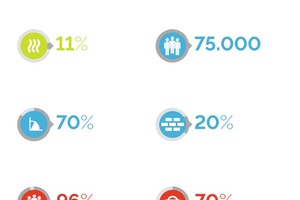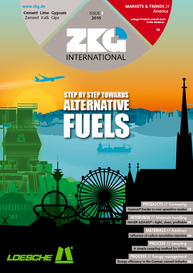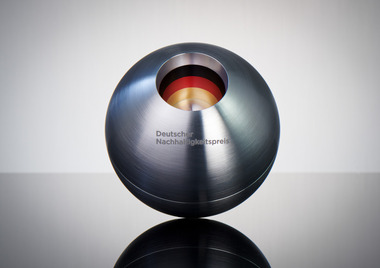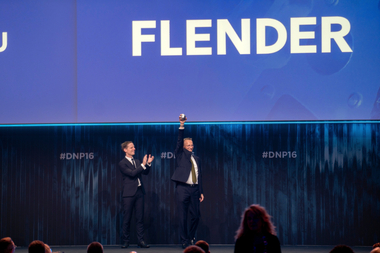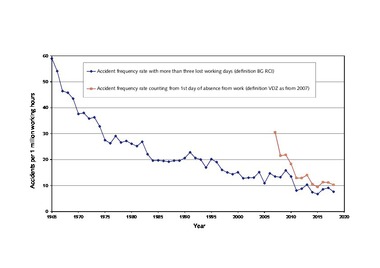New information platform on sustainability in the German cement industry
Social partnership has a long tradition in the cement industry, and employees, unions, companies and industrial associations have been practising successful cooperation for decades. They have a joint commitment, inter alia, to the Initiative for Sustainability in the German Cement Industry, which today unveiled its new website.
The Initiative for Sustainability in the German Cement Industry has been working since 2002 to establish sustainability awareness in the industry. Central focuses include not only nature conservation and environmental protection measures, but also the assurance of domestic cement production, producing companies’ economic needs, and protection of the employees’ interests. Extensive further training provisions for the industry, and also a highly informative report on its employment situation, have been evolved, inter alia, under the auspices of this initiative. The new information platform is now intended to publicise these and other important topics to a broad audience.
“Biodiversity and the obtainment of mineral resources nowadays go hand-in-hand”, noted Robert Feiger, National Chairman of the “Bauen-Agrar-Umwelt” (“Construction Industry - Agriculture - Environment”) union (IG BAU), at the inauguration of the new platform, drawing attention at the same time to a whole series of ecological successes achieved by the sustainability initiative.
“In cooperation with environmental organisations, we have developed pro-cedures that enhance the biodiversity found at quarries even during the production phase”, Feiger commented. And, as he affirmed, use as nature reserves is, at above 50 % even now the predominant post-production use for the cement industry’s mining and quarrying sites.
“The cement industry has also achieved a lot in sustainability in its economic and social senses in recent years”, stated Michael Vassiliadis, Chairman of the “Bergbau, Chemie, Energie” (Mining, Chemicals and Energy Industry) union (IG BCE). He noted that German producers play a pioneering role in precisely the field of energy efficiency. “Competitive power and fuel prices nonetheless remain vital for our industry, to assure the jobs of the around 7400 persons working in it”. He added that, despite certain concessions - in the case of the Renewable Energy Sources Act (RESA), for example - cement companies’ energy costs burdens make up more than 50 % of their GVA.
Dr. Dirk Spenner, Chairman of the Socio-political Working Group for the German Cement Industry (SPADZ), noted that long-term access to domestic feed materials for cement production remains decisive from the employer’s viewpoint. “Despite ever greater reduction of the clinker content of our cements via the use of alternative feed materials”, he stated, “limestone and calcareous marl will nonetheless remain the essential basis for the continued existence and sustainable development of our industry “.
The new website presents to a broad audience the results of recent research projects into sustainability in the cement industry, thus documenting the many years of commitment by the industry’s social partners. The website’s new layout is orientated around the triple-bottom-line model for sustainability, which proceeds from the premise that sustainable development can be achieved only via the simultaneous and equal-priority implementation of both ecological, economic and social targets. Informative graphics, a video and extensive project references illustrate for visitors to the site the initiative’s successes and achievements up to now. The site’s contents are in each case assigned to one of the three “bottom lines” and are identified by individual colour codes, in order to enable visitors to measure the performance of the initiative against the corresponding sustainability criteria.
The aim of the Initiative for Sustainability in the German Cement Industry is the dialogue between government, society, unions and employers. The social partners participating include the IG BAU and IG BCE unions, the Socio-political Working Group for the German Cement Industry (SPADZ) and the German Cement Works Association (VDZ).
//www.zement-verbindet-nachhaltig.de" target="_blank" >www.zement-verbindet-nachhaltig.de:www.zement-verbindet-nachhaltig.de

